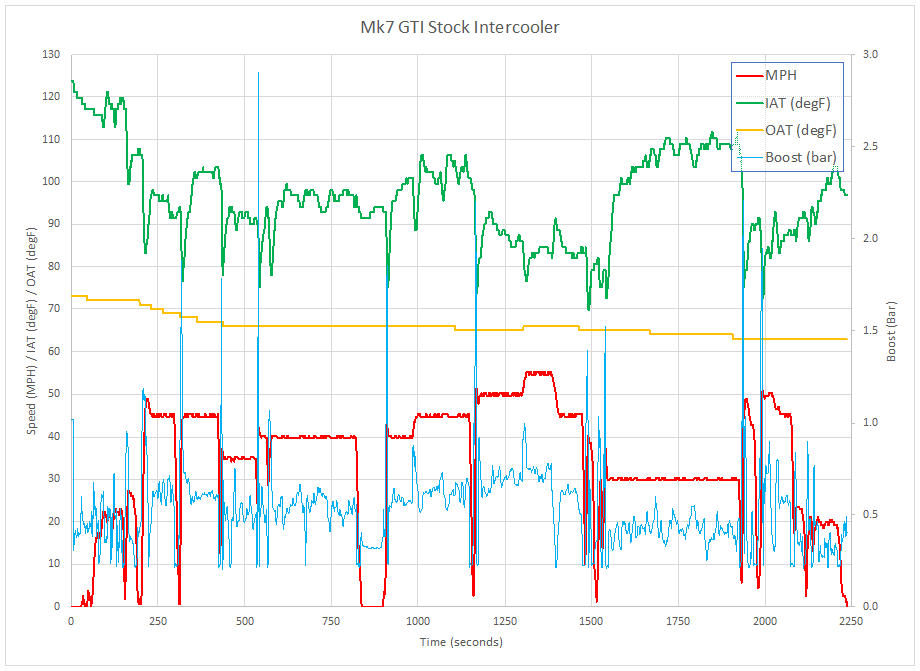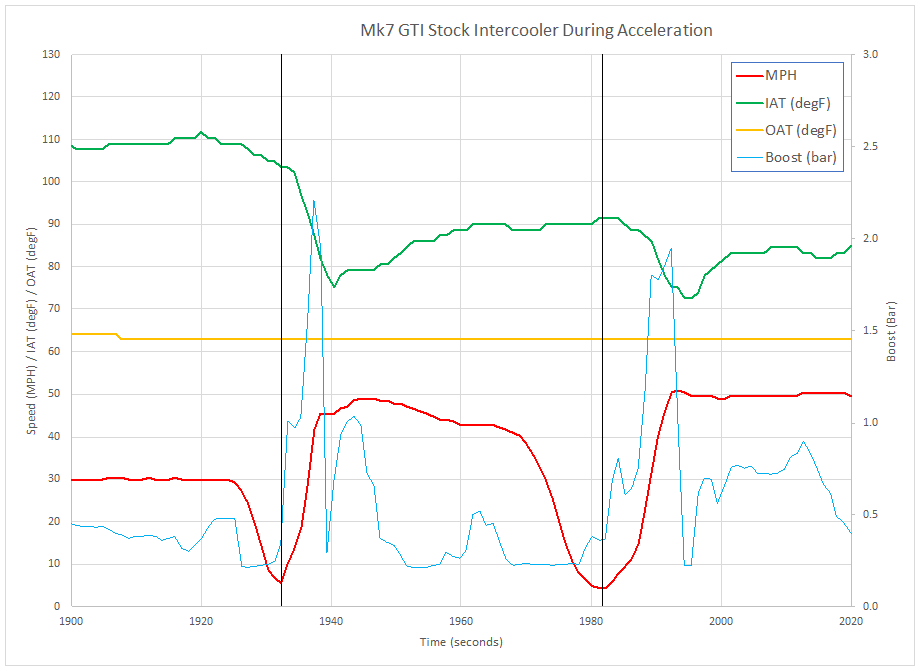During the previous drive the Intake Air Temperature was recorded with VCDS of the stock Mk7 GTI intercooler. The results of that drive prompted the question of how the IAT results would compare if accelerating faster during some of the drive transitions.
The Setup:
To try to answer the question that same route was driven a short time later on the same day. An effort was made to accelerate quickly when going from one speed zone to another, or when taking turns where the GTI would need to be slowed and then sped up again.
The Results:
Due to the second drive taking place later in the day the outside air temperature had decreased and continued to cool during the drive. This makes comparing with the previous drive less useful since the cooler ambient air will increase the efficiency of the intercooler.
The chart below shows the Intake Air Temperature during the drive:

One of the most notable trends from this chart is the reaction of the Intake Air Temperature to the boost events. Each instance where there is a blue line spike, showing a boost event, there is a corresponding drop in IAT.
During the previous drive it was noted that during acceleration the IAT decreased, but the previous drive did not include generating positive boost pressure from the turbocharger. It was assumed that the increase in airflow through the intake was producing the decrease in IAT, which it may have been doing.
Now with higher temperature being generated by the turbocharger there is still a drop in air temperature at the IAT sensor.
Taking a closer look at the data near the end of the drive:

For several minutes the car is being driven at 30 mph which not surprisingly leads to an increase in the IAT up to approximately 110 degF. Interestingly when the car slows further and then accelerates quickly under boost the IAT drops to within about 15 degrees of ambient.
There is a short period at 40-50 mph and then the car slows again, whereupon a second under boost acceleration occurs and the intake air temperates drop to approximately 10 degrees over ambient.
Conclusion:
During short boost events that bring the GTI up to posted speed limits the intake air temperature decreases to 10-15 degrees F over ambient when the outside air temperature in is the mid-60 degree F range.
These acceleration events were rapid enough to induce traction control intervention but not long enough to adversely impact the intake air temperature.
How much difference an aftermarket intercooler can produce is the next question to pursue answering.
